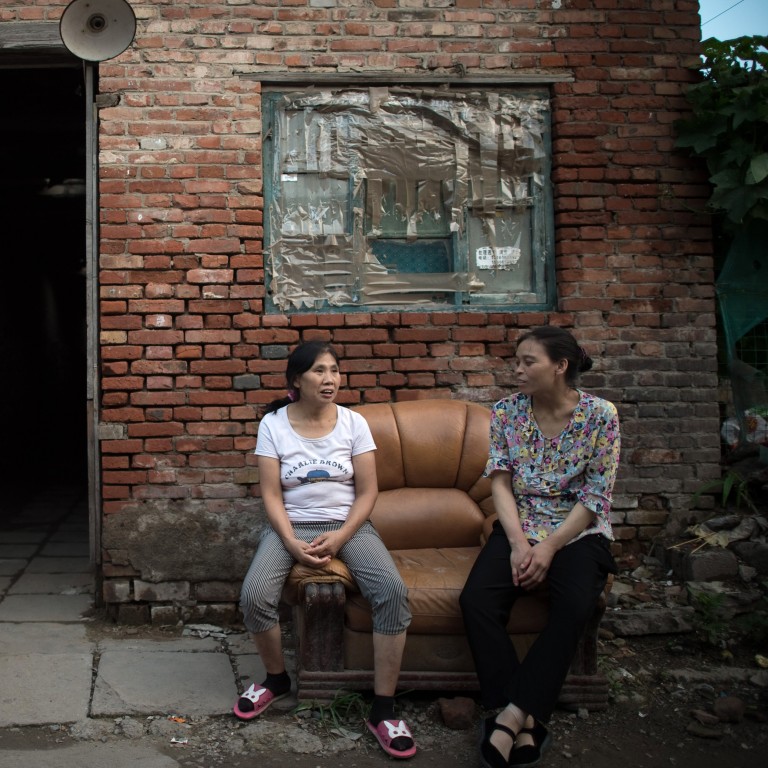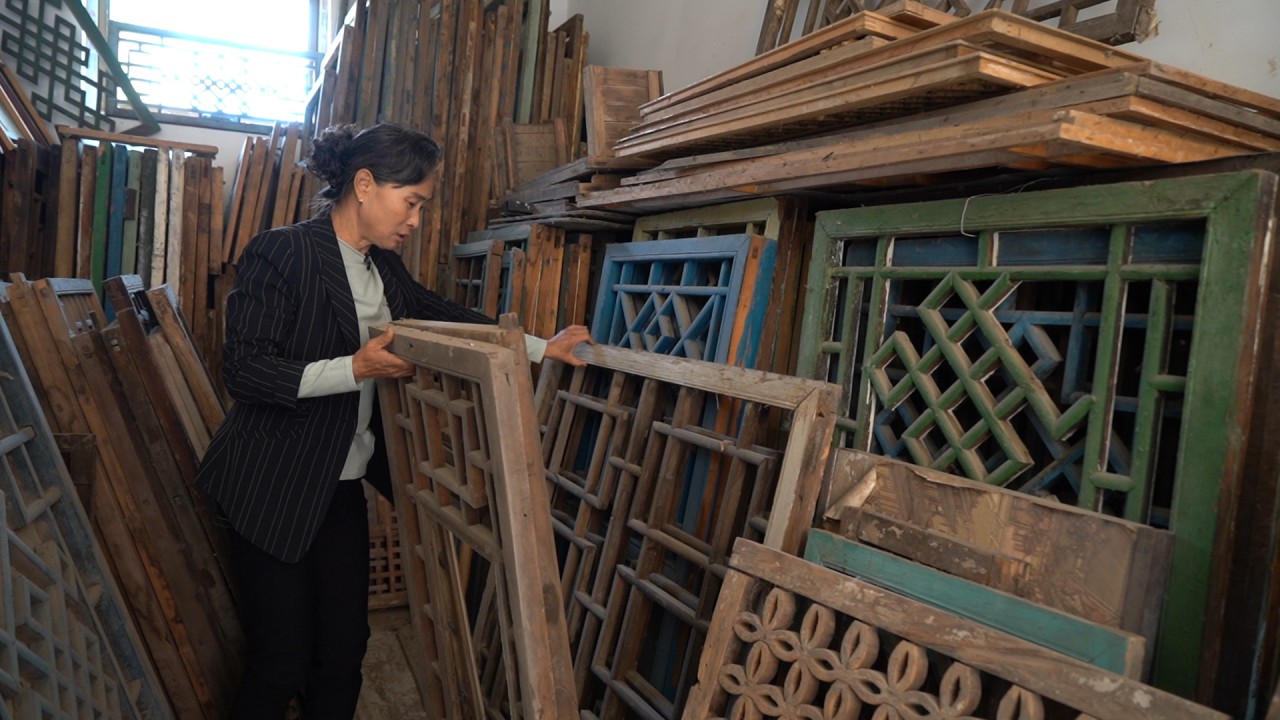
Are women’s land rights about to improve in China’s countryside?
- Beijing’s latest annual rural policy statement addresses gender inequalities that can leave women landless and vulnerable
- Observers are hopeful better protections are on the way in the male-dominated collectives that parcel out land
The central government’s first policy statement of the year traditionally addresses rural affairs. This year’s document included an order for collective organisations in China’s vast countryside to “protect women’s legal rights and interests”.
National laws say women’s rights to land are equal but legal loopholes, weak enforcement and old traditions of gender inequality have hindered China’s efforts to protect them, experts say.
Tens of millions of women in rural China do not have their names on land contracts and certificates, a landless, vulnerable position that can set up a struggle to obtain economic independence and social security.
Without these legal documents, women can lose their rights when marriage, divorce or widowhood changes their status under China’s hukou system of “household responsibility”, adopted in 1984.
Rural land in China remains collectively owned but is divided among families according to their size. The central government mandates that land use rights are leased to households for 15 years, with reallocations occurring every 30 years.
‘Can’t afford to fail’: China vows modern socialism will reach rural masses
Villages have a degree of autonomy when parcelling out the fields, which is determined by majority rule in the male-dominated village assemblies.
In between, the land is usually registered to the head of the family, traditionally the father or husband. According to a 2018 survey by the All-China Women’s Federation, fewer than 20 per cent of rural women are included on land certificates.
And if a woman marries “out” to another village and takes her hukou with her, she loses her portion of the land registered to her family and is also excluded from future allocations in her home village.
Having missed the land allocation at her husband’s village, the woman risks not being recognised as a member of the collective economic organisation, barring her from any benefits based on land rights.
“All of a sudden, rural women might become a ‘three noes’ person – no land, no house, and no money,” said lawyer Lin Lixia from Qianqian Law Firm in Beijing, which specialises in women’s rights advocacy.
“The legislation fails to take the changing status of women into consideration, because male villagers won’t change [their hukou]. This means the legal system [confirms] that women have no independent [land] rights but can only rely on men,” she said.
Without land use rights, women cannot build houses in their own names. Worse still, they are often denied their share of compensation if their families’ lands are requisitioned in the “land grabs” which have accelerated as part of China’s rapid urbanisation.
Lin, who has been following the issue since 2004, said the consequences for these women could be as dire as an inability to feed themselves and their children.
In nearly two decades, Qianqian has been approached to act in more than 3,000 disputes involving women fighting for land rights. However, of the 200 cases taken on by the law firm, nearly 90 per cent were dismissed or ruled against the plaintiffs, she said.
China is relaxing its rules on household registrations
Although China had formulated a series of national laws and regulations safeguarding women’s land rights, many had been general guidelines that remained unclear about specific rules, Lin said.
This has left room for different interpretations by the local villages, which operate as autonomous entities in China’s political system, exempt from interference by higher-level governments or the courts.
The village assemblies, run on traditional lines and dominated by male decision-makers, often exclude “married out”, divorced or remarried women and their children from the collective, seeing them as outsiders trying to carve a piece from the cake.
Experts have hailed last October’s amendment to the law protecting the rights and interests of women, but noted that the larger problem remained China’s “gender-biased” policy enforcement, something they hoped would improve in the light of the No 1 document issued in February.
Will China’s updated women’s rights law actually help women?
“There hasn’t been a unified and coherent guidance on how to implement land rights legislation so areas have created their own ways of enforcing the legislation,” said Pia Eskelinen, author of Rural Women’s Land Use Rights in China: Acceptance and Enforceability.
“Old traditions have guided the procedures strongly and unfortunately traditions are not always equal,” said Eskelinen, a researcher at the University of Turku in Finland.
Ke Li, associate professor at the City University of New York’s John Jay College of Criminal Justice, said the amendment “did bring about some meaningful changes on women’s land rights”.
Article 55 stipulates that rural households include female family members in ownership documents and on the official land register, giving greater clarity on land registration. There is also a new mechanism for official intervention.
Tourism, farming and crafts: China’s villages seek a blueprint for revival
Li, who has researched land dispossession and women’s rights in rural China, said the amendment sought to remedy a problem in the previous version that “didn’t touch on the obligation of the head of household – usually male – in formally acknowledging women’s land rights in legal documents”.
Another article in the legislation now explicitly calls out organisations and individuals most likely to violate women’s land rights, including the rules of the village assemblies.
Qianqian’s Lin said this was a step forward from the vague language of “any organisations and individuals” previously used.
‘Like going to hell’: more young Chinese are falling out of love with tying the knot
Li said women could now approach prosecutors’ offices in the hope that the state would initiate public interest litigation to reverse or curb rights infringement. Previously, it was left to the woman to launch litigation, arbitration or seek administrative mediation.
“[But] the cost of mobilising state laws to protect one’s rights – and particularly the price of using official justice systems, say the courts and the procuratorate, to right wrongs – can be exorbitantly high,” Li said.
But rural women “far too often lack financial, social, and cultural capital to pursue official remedies for rights infringement”, she said.
“How to make legal rules more enforceable in the first place and how to make women stronger advocates for their own rights and well-being, I believe, are the questions we ought to reckon with as a society in the years to come.”
China has very few women in power despite a commitment to gender equality
Experts are now waiting to see if a new law on the rural economic collectives – currently out for public feedback during its draft stages – will give women more say in the decision-making processes of the village assemblies.
One proposal is to increase the proportion of women who can vote in the village assemblies, as part of the law’s expected additions to the detail on who can belong to the collective economic organisations – a key foundation if rural women are to share equal rights and interests in China’s countryside, observers say.
“One of the biggest challenges for women in obtaining their rights in rural areas is that they are women. The problems in equality in rural areas are highly gendered. One might even say that the biggest obstacle for women to obtain their equal rights are men,” Eskelinen said.
“I hope women are encouraged to take more part in policymaking and especially policy enforcement. By doing so Chinese society will reach more equality in all aspects of life, not just ostensible equality.”


